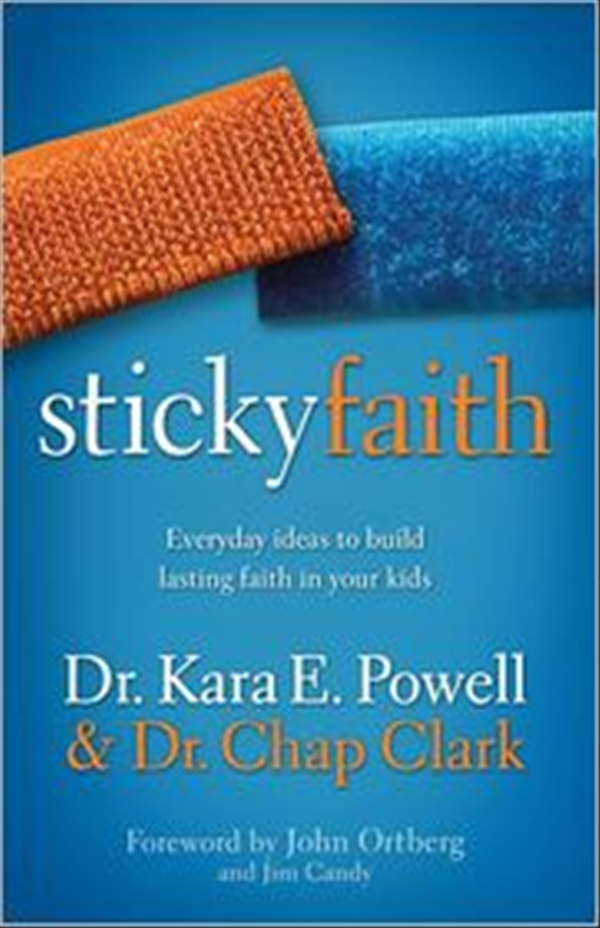4 Tips for Connecting with Your Young Adult Children over the Holidays

By Kara Powell, Executive Director at the Fuller Youth Institute and Co-Author of Sticky Faith: Everyday Ideas to Build Lasting Faith in Your Kids
“Home for the Holidays”
If you’re a parent of a young adult, the very phrase tends to fill you with great joy. You might even dream up idyllic pictures of your entire family talking and laughing around the Thanksgiving table, diving into both great food and great conversation.
Yet if you’re honest, you’re also wondering: now that my kids are grown, and I don’t see them as often as I used to, what can I do to really connect with them?
In our six years of research geared to help teenagers develop a faith that lasts, or what we call Sticky Faith, we have unearthed several tips that can strengthen your relationships with your grown children, regardless of your faith or holiday traditions.
1. Avoid Asking “Yes” or “No” Questions
Few things truncate conversation more than questions that can be answered with a simple “Yes” or “No”. When it comes to discussions with young adult children, we need to replace the typical “Yes” or “No” questions we’re tempted to ask with open-ended questions that are less likely to make our kids feel defensive and more likely to stimulate good dialogue.
So instead of asking “Are you partying?” try asking, “What do you like to do on a Friday night?”
Rather than ask, “Did you pass all your classes?” say, “What was your favorite class and why?”
Instead of interrogating, “Are your friends a good influence?” instead try, “What do you like about your friends?”
If these sorts of questions are counter-intuitive to you, you might want to think ahead about the areas of your son or daughter’s life that you’d like to discuss and brainstorm a few open-ended questions that can help you get out of the shallow end and into deeper conversational waters.
2. Ask Your Young Adult Child Who They’d Like to Connect With
One of the major highlights of our Sticky Faith research has been the importance of intergenerational community. The greater the safety net of caring adults, the greater the likelihood that net will catch our children when they stumble and fall.
Ask your young adult child if there are any friends or adults with whom they’d like to connect over the holiday break. If your son or daughter has a special bond with a member of your extended family who will be in town, do what you can to give the two of them space to grab some coffee or take a walk. A few moments of quality time can be the relational fuel your child needs to propel through this next season.
3. Make Your Own Home a Welcoming Place for Your Kid’s Friends
Whether you live in a small apartment or a sprawling house, think ahead of time about what you can do to make your home a refuge for your son or daughter and an appealing “hang out” hub for their friends (those from high school or new friends from college or work). Maybe that means you stock up on snacks, or you bake a few extra pies. Perhaps you make an effort to have a football schedule or favorite movies at the ready.
If your young adult does have friends over, don’t hover. But do be warm and welcoming, and ask those friends how they are doing. As your children see you chatting with their friends, they may be more likely to open up with you at that moment or later on.
4. Be Grateful for Whatever Time You Get.
Odds are good that you’ll wish that you had more time with your son or daughter, and that the four hours or four days you spend with them won’t feel like enough. You might even say to your child as your visit comes to a close, “I wish we had more time together.”
You think that expressing a desire for more time with your child communicates your love for them, and you may be right. But it can also make them feel guilty and inadequate. Let’s be honest: who among us wants to be around someone who triggers those feelings? Now stop, take a deep breath, and read that one again.
So even if you wish for more time, resist the urge to verbalize that. Instead, thank them for whatever time they carved out to be with you, and the sacrifices they had to make. Later you can cry on your spouse or best friend’s shoulder and tell them how deeply you miss your kids. But by keeping a positive attitude while you’re together, you and your children alike will be glad for the chance you had to be home for the holidays.
For more ideas on how to connect with and build long-term faith in kids of all ages, visit stickyfaith.org.
Originally published November 21, 2011.








